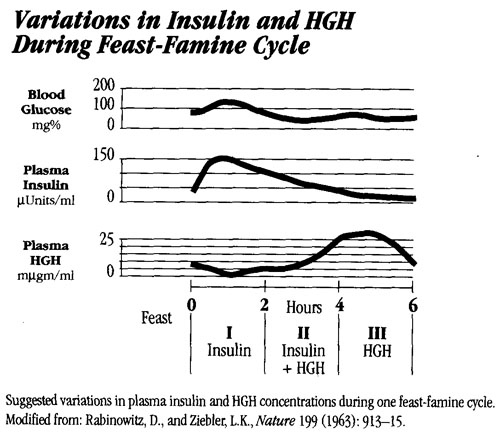 Calorie counting is simplistic, weak-minded, thoughtless, and dogmatic. Gee, I hope I am not being too wishy-washy about what I really think here.
Calorie counting is simplistic, weak-minded, thoughtless, and dogmatic. Gee, I hope I am not being too wishy-washy about what I really think here.
BEFORE READING ON … ARE YOU, LIKE ME, A SENIOR WHO’S INTERESTED IN STAYING HEALTHY FOR YEARS TO COME? IF SO, YOU MIGHT LIKE TO SEE WHAT A SCIENTIST (ME) HAS TO SAY ABOUT HOW TO ACHIEVE IT AT NO EXTRA COST TO YOU, WITHOUT EVEN HAVING TO LEAVE HOME, STARTING HERE: HEALTHY AGING NATURALLY.
Now back to today’s ‘sponsor’ – calories…
Misusing calories for dietary advice is so rampant that health professionals everywhere – nutritionists, doctors, exercise gurus, you name it – seem to have turned off their thinking caps permanently.
Calorie Counting Dogma
The mind-boggling dogma about calories even inspired me to write up a short ebook explaining some inconvenient truths. I’d like to report that it has become a best seller on Amazon (Kindle version at 99 cents!). The reality is that maybe my mother bought a copy, and that’s about it. As a reader of this post, however, you can have it at no cost at this link: Calorie Counting Madness: Surprising Truths About Weight Loss.
You will find in that book why calories are irrelevant when it comes to dietary advice. You will see why calorie counting is a useless exercise. You will discover, if you are obese, why the whole notion of reducing food calories will not help you with long-term weight loss.
Once you understand what calories really are, and what they aren’t, you will have a better grasp of why there is no such thing as a ‘fat-burning diet’ or ‘fat-burning foods’. You will also begin to understand why the old dogma of ‘calories in, calories out’ is idiotic when applied to anything in human physiology.
The only part of this puzzle that I have not figured out is why so many so-called experts, from Dr. Oz to your local nutritionist, remain completely clueless about calories.
The closest that I have come to understanding why the simple-minded dogma about calories is so rampant is just that … i.e., because it is simple-minded. Regurgitating common mantras about calories is so easy that it takes no thought whatsoever.
What is Food Really About?
The actions of food on our bodies are a lot more complicated than providing fuel. Explaining what food really does to the increasingly obese public is a daunting educational task. Fortunately, people really don’t have to understand it. They just have to know what lifestyle choices they have to make for getting slim and healthy and staying that way for life.
An Early Indicator
One of the first indicators that I found about what food really does is depicted in the graph below, from a research article published in 1963 (!).

The key point of this graph is that certain hormones, in this case insulin and human growth hormone (hGH), vary in response to food. Blood glucose does, too, which is what you would expect.
The response by insulin peaks out within the first 1-2 hours after a meal. The peak response by hGH takes 5-6 hours. The period of 2-4 hours after a meal is when insulin and hGH overlap and work together for transporting blood glucose into cells (insulin) and for stimulating growth, cell reproduction, and cell regeneration (hGH).
This is how these two hormones are supposed to respond to food. It has nothing to do with calories.
What this means is that food drives hormone responses.
SIDENOTE: Just this graph alone should tell you that anyone who advocates eating several meals per day has no idea what they are talking about. Doing so completely undermines the proper responses to food by insulin and hGH. And that’s just for starters.
More About Hormone Responses to Food
What has changed since 1963? We still know that one of the functions of food is to drive hormone responses. The main hormone of interest these days, however, is leptin. It was only discovered in 1994. Since then new knowledge about this hormone has pointed to it being THE master hormone.
Leptin sensitivity and resistance determine all energy balance. Leptin controls all of the machinery of energy generation for humans.
By the way, leptin supersedes insulin for control of cellular energy. Indeed, leptin resistance and insulin resistance go hand in hand … the main indicators being obesity and Type 2 diabetes.
On the other hand, recovering leptin sensitivity drives the recovery of insulin sensitivity. In other words, depending on how far along you are on the diabetes spectrum, becoming leptin sensitive can reverse your Type 2 diabetes.
For the geeks among you, lots of gory details about leptin are posted on Wikipedia here.
More importantly, what you should do to get and stay sensitive to leptin is the real key to living right, including how and what you eat. Leptin sensitivity is the foundation of good health. Without it, you have absolutely no chance of being healthy.
It is a Leptin Story, Not a Food Story
Your hormone responses to food depend on where you are regarding leptin sensitivity/resistance. If you are 30 pounds overweight, it is pretty certain that you are leptin resistant. Every single chronic disorder that you can imagine – diabetes, osteoporosis, cancer, arthritis, and many more – starts with leptin resistance.
The great news for you is that the steps necessary to recover leptin sensitivity are clearly laid out on Dr. Jack Kruse’s blog here: The Leptin Rx: FAQs.
As you can see from that article, eating and living right for getting and staying leptin sensitive have nothing to do with calories. Of course, this should come as no surprise when you understand how irrelevant food calories are regarding anything to do with actual human physiology.
A Couple More Things…
Although food calories have no meaning metabolically, it is still important to think in terms of generating heat by metabolizing body fat. Two strategies for accelerating this process have been known for decades.
The first strategy, created in the 1950s, is the HCG Diet Protocol created by Dr. A.T.W. Simeons. Updating and modernizing this protocol at my BestHCGWeightLoss blog has been a focus of mine ever since I used it to drop 30 pounds and 5 percent body fat in 30 days. This protocol definitely accelerated my recovery of leptin sensitivity.
The second strategy, first discovered with American astronauts in the 1960s (and before that with Russian cosmonauts), now goes by the name ‘cold thermogenesis‘ – meaning, the use of cold adaptation to generate metabolic heat. Quite a bit of research has been devoted to this topic over the intervening decades. The main points are in my article here: Get Healthy, Live Longer With Cold Thermogenesis.
The effects of cold thermogenesis on leptin and its receptors are nothing short of miraculous. It is not for the faint of heart, though. At the moment, I am building toward more pool time at 50 degrees F to accelerate my own cold adaptation. It takes me 10-15 minutes to get fully submerged up to my neck, and I can only stay in for about 30 minutes at a time.
Nevertheless, if I had to choose the one most important thing that I do for my own health, it would be adapting to cold
Comments or Questions?
I’d love to hear from you. This and every other post here provides a comment section at the end of the post, exactly for that purpose.
So, by all means, leave me your thoughts.
I would be especially grateful if you point out any flaws in my logic, factual errors, or ordinary typos. (I’ll give you a little ‘huzzah’ in my heart.)
Then I’ll respond as soon as I can.
All the best in natural health,
![]()
Statements on this page have not been evaluated by the Food and Drug Administration. Information here is not is not intended to diagnose, treat, cure, or prevent any disease.
I may receive a commission for purchases made through those links.
This doesn’t change the cost to you.
Interesting…have you tried whole-body cryotherapy? Three minutes of extreme cold in a controlled chamber. Much less painful than those cold water dips! Unfortunately, it’s a rather pricey remedy but you feel fantastic afterward.
Thanks for the suggestion, Kristina. I will look into it. You are right about the cold water dips being painful, so I am all ears when it comes to finding a newer, easier strategy. I will put together an update when I get enough details on cryotherapy to comment on it. Sound like fun, doesn’t it?
All the best,
Dennis
A quick update on cryotherapy: It didn’t take much effort to discover that this approach is very, very thin on science. What I do know is that heat conduction in water is about 24 times more efficient than in air. Based on that alone I would be surprised if cryotherapy can measure up to a cold water dip for invoking true cold thermogenesis.
All the best,
Dennis
Doc-
I love this site! Good info here my friend. Do you think you’ll ever have discount coupons for your supplements? Keep it coming doc!
Thanks, Geo. Once in a while we have specials. You just have to watch our store site:
http://npscript.com/doctorsnutritioncenter
Be sure to use our code, -‘dnc42’ – to get access to all of our supplements.
All the best,
Dennis